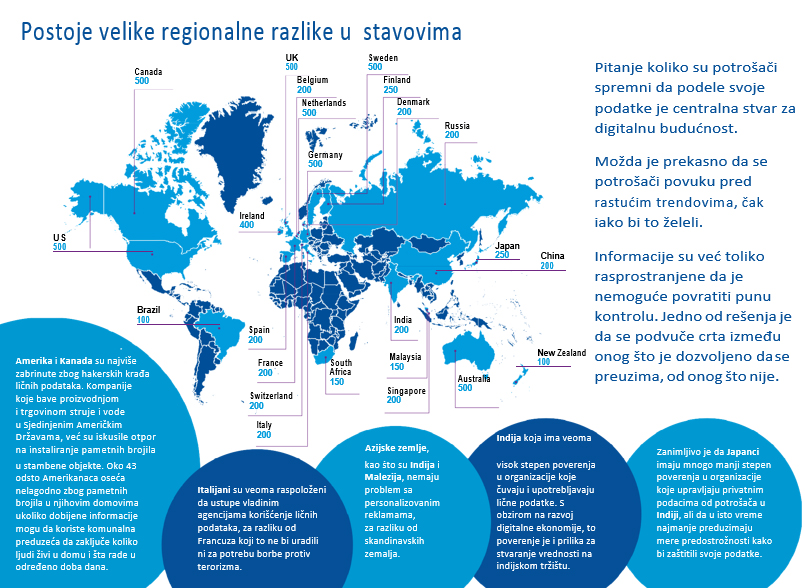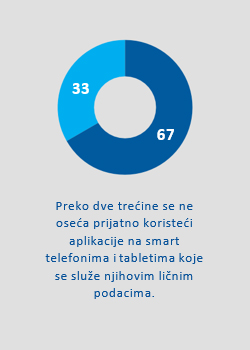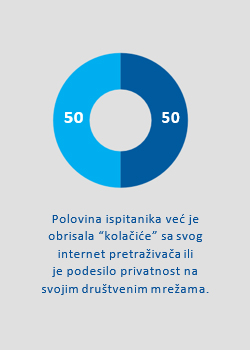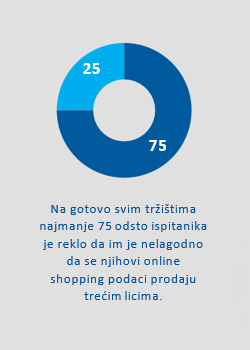People are increasingly aware that various organisations collect, use, retain and disclose their information, including their right to trade and are therefore they are very careful when providing information relating to their family life, according to a survey by KPMG International conducted in 24 countries of the world on a sample of 7,000 people.
In most countries around the world from 60 to 87 percent of people say that the control over their own privacy is more important than comfort, and even 55 percent are against buying online because they are worried that they will threaten their private data.
However, nearly half of respondents would still accept free or low-cost products in exchange for a lower dose of privacy. Free pills in exchange for permission to companies to follow when, why and how to use it, would be acceptable for 48 percent of respondents, while this kind of cooperation with companies is seen as “attack” by 52 percent of respondents.
What is alarming is the fact of confidence towards certain industries. In the banking sector has the confidence of 41 percent, and only 39 percent of people have confidence that the health sector keeps their data. Only a third of respondents have confidence in the local authorities and the real estate sector and social networks causing the greatest mistrust when it comes to the use and storage of data.
Income and level of education have a major impact on whether consumers will accept less privacy, according to a survey.
There are large regional differences in attitudes. America and Canada are most concerned about hackers stealing personal data. Companies engaged in the production and trade of electricity and water in the United States are already experiencing resistance to the installation of smart meters in residential buildings. About 43 percent of Americans feel uneasy about the smart meters in their homes if the information received from the utilities can be used to infer how many people live in the home.
Italians are very willing to defer to government agencies use of personal data, unlike the French who would not do it even in a need to fight terrorism.
Asian countries, such as India and Malaysia, have no problem with personalised advertisements, India has a very high degree of confidence in organisations that store and use personal information. It is interesting that the Japanese have a much lower degree of confidence in organisations that manage private data than consumers in India, but at the same time they take least precautions to protect their data.
The question of how much consumers are willing to share their information is central to the digital future. Maybe it’s too late to pull consumers from emerging trends, even if they wanted to. The information is already so widespread that it is impossible to regain full control. One solution is to draw the line between what is allowed to take over, from what is not.
Some interesting data from the survey:
– Smart phones and tablet applications that are used to navigate, chat and get news, and they can access your contacts, photographs and browsing history, which 84 percent of respondents considered “offensive” and only 16 “cool”.
– Imagine the following situation, which is often happening: send an email to a friend that you are planning a visit to Paris. The next day on social networks you notice advertisements for hotels, restaurants and excursions in Paris. Even 68 percent of them considered this “offensive” and 32 percent believe it is “cool”.
– In almost all markets, at least 75 percent of the respondents said they were uncomfortable that their online shopping data were sold to third parties.
– Only 20 percent use encryption to protect their private data




